Rocky road ahead for Jeremy Rockliff, a rebel with many causes
From Aboriginal land returns to the GST, Tasmania’s new premier Jeremy Rockliff reveals an ambitious, progressive reform agenda — but can this straight-talking Liberal moderate pull it off?
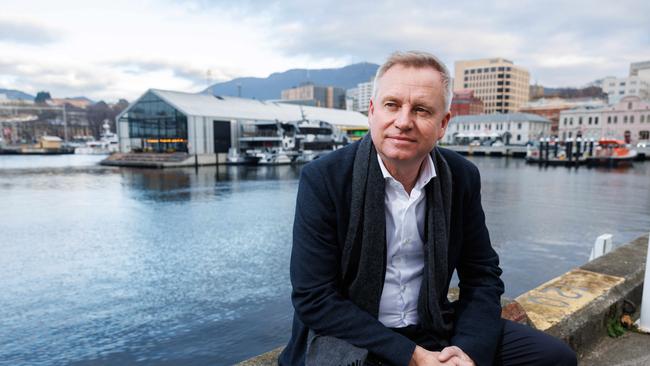
I find Jeremy Rockliff – the nice guy of Tasmanian politics thrust suddenly into the state’s top job – reheating his morning cup of coffee for the third time.
It’s a handy metaphor. Tasmania’s 47th Premier heads the third refresh of Tasmania’s Liberal government since the party swept Labor from office in 2014, first under Will Hodgman and then Peter Gutwein.
The 52-year-old’s inability to get through a cup of coffee without interruption is also indicative of the sheer diversity of issues attracting his attention.
As well as the premiership, this farmer turned politician has retained his previous health portfolio, in addition to vital tourism and trade, and is grappling with several crises and a smorgasbord of agendas.
The state health system is a mess, exacerbated by a GP shortage as severe as anywhere in the country, amid rising Covid cases, hospitalisations and deaths.
Public servants are demanding inflation-busting wage rises not factored into the state budget, while people sleep rough amid a severe housing shortage. Infrastructure is groaning after decades of under-investment, state debt is soaring and a royal commission-style inquiry is daily exposing scandalous failures by government to deal with child sex abuse.
Rockliff also must persuade Tasmanians struggling to pay their rents and rising mortgages that now is the time to increase the number of state politicians via his plan to expand the lower house from 25 MPs to 35.
Even embryonic potentially “feel-good” social policies – a truth-telling process and treaty with the state’s Indigenous community, and a pledged ban on transgender “conversion therapy” – are proving complex and fraught.
All this on the plate of a quietly spoken, seemingly cautious man who it was speculated – right up until he surprised many by running for the leadership – had wanted to quit politics in favour of full-time farming.
When his party fell in behind him as leader following Gutwein’s sudden departure in April, many wondered out loud whether he had the ticker for the job, such was the perception of a benign and less-than-dynamic politician.
It is a perception that, as Rockliff sips that microwaved coffee, he is keen to knock on the head, spruiking himself instead as a straight-talking leader intent on action.
“Firstly, I like change, and I like reform,” he says. “I’ve signalled that clearly … I want to lead a government that tackles reform.”
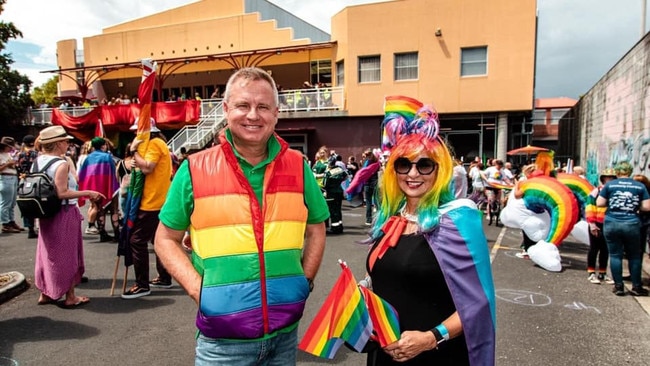
Tasmanians may be surprised at the scale of reform ambition being taken on by a man whose nickname – Rocky – had until now seemed ironic. It’s hard to know where to start.
We cover plans to cut the number of local councils and modernise local government; ban transgender conversion practices; campaign for a republic and an Indigenous voice; conclude a truth-telling and treaty process by May 2025; hand back more land to the state’s Aborigines; broaden the state tax base; lead a solution to regional Australia’s GP shortage; implement the recommendations of the “harrowing” child abuse inquiry; and secure an extension of the GST no-worse-off guarantee protecting the smaller and less resource-rich states.
Despite his premiership not having been endorsed at the polls – and not due to be so validated until May 2025 – it appears that Rockliff is throwing caution to the Roaring Forties.
There is already some concern within Liberal ranks that Rockliff, known to wear a rainbow Tassie tux (local lingo for puffer jacket) in solidarity with the LGBTQI+ community, will prove too moderate for the party’s conservative base. Rockliff believes these critics are wrong, and suggests he won’t dilute his progressive views to pacify conservatives. “I’ve been around for a long time and I’ve always done what I thought was right,” he says. “I’m a practical farmer type. Yes, I wear my heart on my sleeve occasionally.”
While claiming to be committed to economic growth and responsible budget management, he suggests his extensive past community work has left him determined to “lead a government with heart”. He argues his success as a member for Braddon – a generally conservative electorate covering the rural heartland North West and frontier-like West Coast – proves his progressive views are no barrier to success.
“I’ve represented what some might say is a very conservative electorate in the past 20 years and … in the past six elections my support has increased,” he says.
“My electorate has known very well for a long, long time all my policy positions on LGBTQI+ reform, for example, and other key social reforms. I think if you’re upfront and straight with them (they respect you). Not everyone agrees with my policy positions but I don’t hide them.”
Conservatives, for now, appear willing to grit their teeth and bear it. After all, Rockliff’s two predecessors were both fellow progressives who secured record electoral success. However, Rockliff’s rival for the premiership, now his Treasurer, Christian conservative Michael Ferguson, patently retains higher ambitions. If Rockliff’s bold reform agenda becomes bogged down or goes pear-shaped, you can bet Hobart to a convict brick that conservatives will say “I told you so”, and potentially push a Ferguson-led back-to-basics revival.
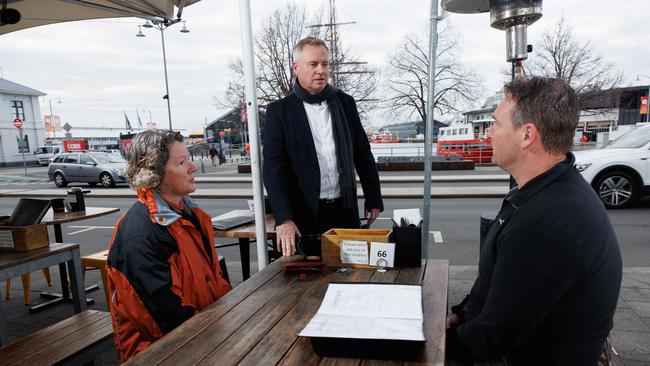
Rockliff, meanwhile, is enjoying a mixed honeymoon. An EMRS poll last month showed a dip in Liberal support following the leadership handover, from 41 per cent to 39 per cent, but still well ahead of Labor’s 30 per cent. Rockliff was preferred premier to Labor’s Rebecca White 47 per cent to 34 per cent.
A born and bred Tasmanian from pioneer stock, Rockliff has three teenage girls – Ruby, Lucy and Holly – with wife Sandra. Throughout his 22 years in state parliament he has continued involvement with the family’s mixed cropping and prime lamb farm in the delightfully named Sassafras, a land of chocolate soils in the North West.
His commitment to social causes and compassion is genuine; he was a volunteer with Lifeline for eight years before entering politics, including three as a telephone counsellor. But his Aboriginal reconciliation agenda is perhaps his most challenging. An initial treaty and truth-telling report highlighted the threshold, fraught task of deciding with whom to negotiate. The Liberal government has embraced a wide range of Indigenous groups, reflecting the extraordinary growth in the number of Tasmanians claiming Aboriginality: from 36 in 1966 to 23,572 in 2016. The more established groups, such as the Tasmanian Aboriginal Centre, claim some involved in newer groups are “fake” or “tick-a-box” Aborigines. They, in turn, are accused of seeking to keep land and influence for themselves.
Rockliff says he will pursue a “more inclusive” approach to Aboriginality and land hand-backs. Trying to marry the disparate views on what treaty looks like – regional deals or a statewide deal, who takes ownership of newly returned lands – will require extraordinary diplomacy and negotiation skills. The broader population will need to be brought along for the ride in a state where some – relying on archaic notions of “full-blood Aborigines” – still talk about Truganini as the last of a race.
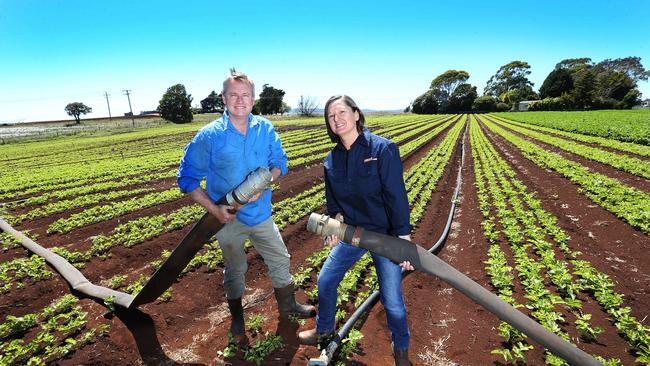
Rockliff says he would like to conclude the truth-telling and treaty process by the end of this term – May 2025 – while he also plans to play a role in the national voice referendum debate.
“I’ve said to the PM that of course I will support that effort very much – and I’m very committed to it at a state level as well,” he says. “Truth-telling is a very important part of the pathway to treaty. Tasmania has a very, very dark past when it comes to our First Nations people and we need to accept, acknowledge (that). The truth needs to be told.”
While “cool” on the proposals for dedicated Aboriginal seats in the state’s lower house, which consists of multi-member electorates chosen via proportional representation, he is “of course open” to a voice to Tasmania’s parliament to mirror the federal body.
Returning more land to Aborigines is “clearly important”. “I want to see more land handed back to our Tasmanian Aboriginal people and we are having those conversations now,” he says. He is also “open to” Aboriginal groups helping to manage Tasmania’s vast Wilderness World Heritage Area, a step long demanded by UNESCO, which listed the property partly because of its cultural significance.
Australians will also see more of Rockliff talking about national health reform and a looming fight by Tasmania and other states to indefinitely extend the GST no-worse-off guarantee, due to expire in 2026-27. He says he and other premiers will make it a key issue at the next federal election.
Rockliff, however, has broken a longstanding premiers’ code by countenancing state involvement in a federal responsibility – the provision of primary healthcare – to address the shocking shortage of GPs across Tasmania and regional Australia.
While calling for federal action on the supply side – more overseas-trained doctors and more local graduates – Rockliff has started talks with the Albanese government on a trial to bolster affordable access to GPs in regional towns. The state would provide district hospitals and other venues for GPs to work from – reducing their overheads – as well as a salary, with financial support from the feds, thereby eliminating any excuse for patients to be slugged out-of-pocket fees.
Tasmania would pilot the concept for potential national rollout.
“(Federal) Health Minister Mark Butler … has indicated that he is open to (it), which is pleasing,” Rockliff says.
Having presided over a state budget that allows state debt to balloon from $1.5bn to $5.2bn, with no repayment plan, Rockliff is also toying with tax reform, although he remains coy about what shape it might take.
While promising “no new taxes”, he confirms “broadening” existing ones is on the table. “We do need a medium to longer term debt-reduction strategy,” he says.
He won’t rule out what to many is a horrifying concept: extending land tax to the family home. “There’s a conversation I need to have with the Tasmanian community – I’m not going to make policies on the run,” he says, when challenged to rule it out.
Rockliff appears well liked, even by political opponents, and attracts loyalty and admiration from staff. If there are any skeletons they appear to be buried deep beneath the rich soils of Sassafras.
He will need to draw on all this goodwill, and more, if he is to pull off an increasingly ambitious agenda. Many more cups of coffee will need to be reheated before Rocky finally retires to his beloved family farm.




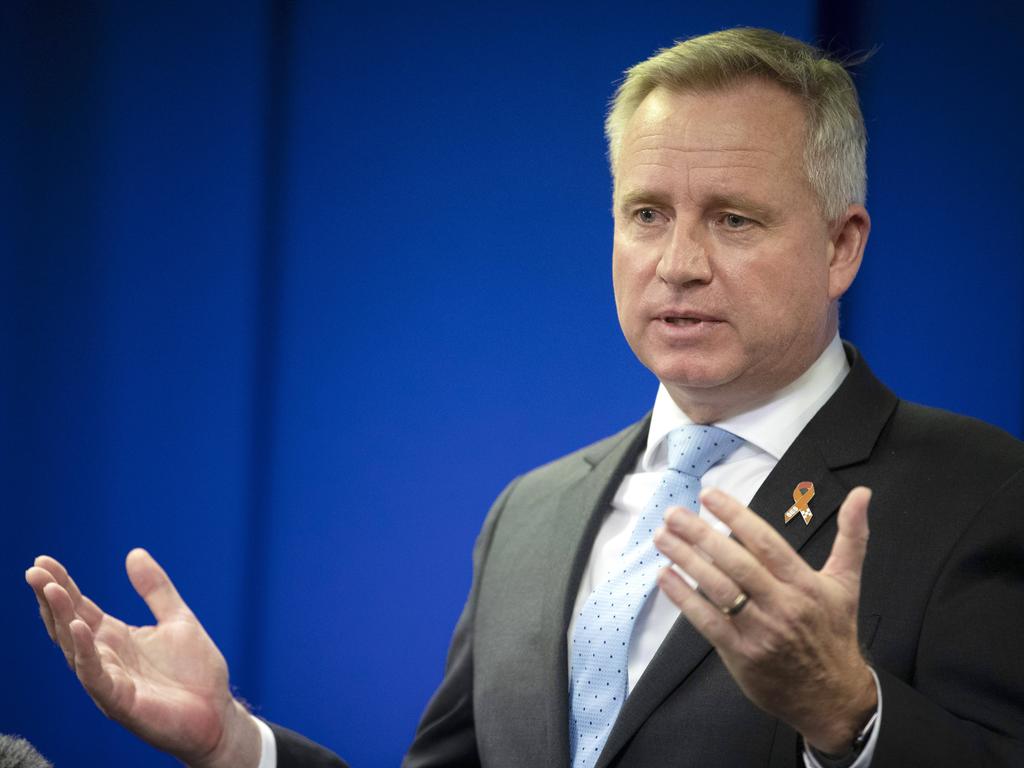
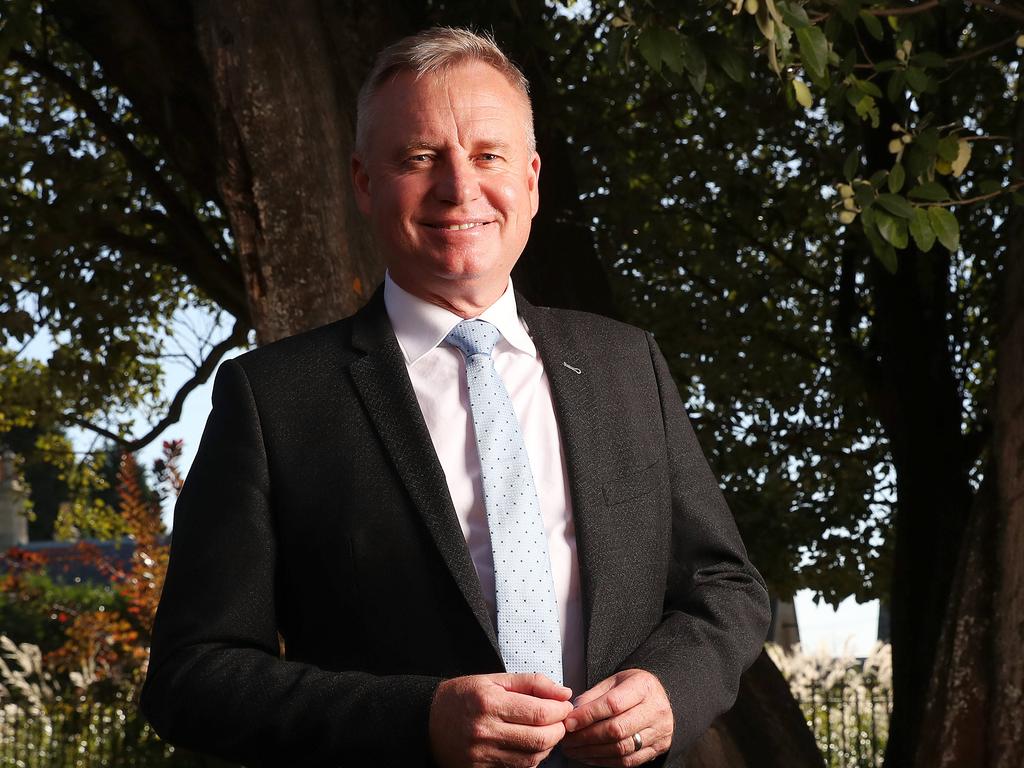
To join the conversation, please log in. Don't have an account? Register
Join the conversation, you are commenting as Logout